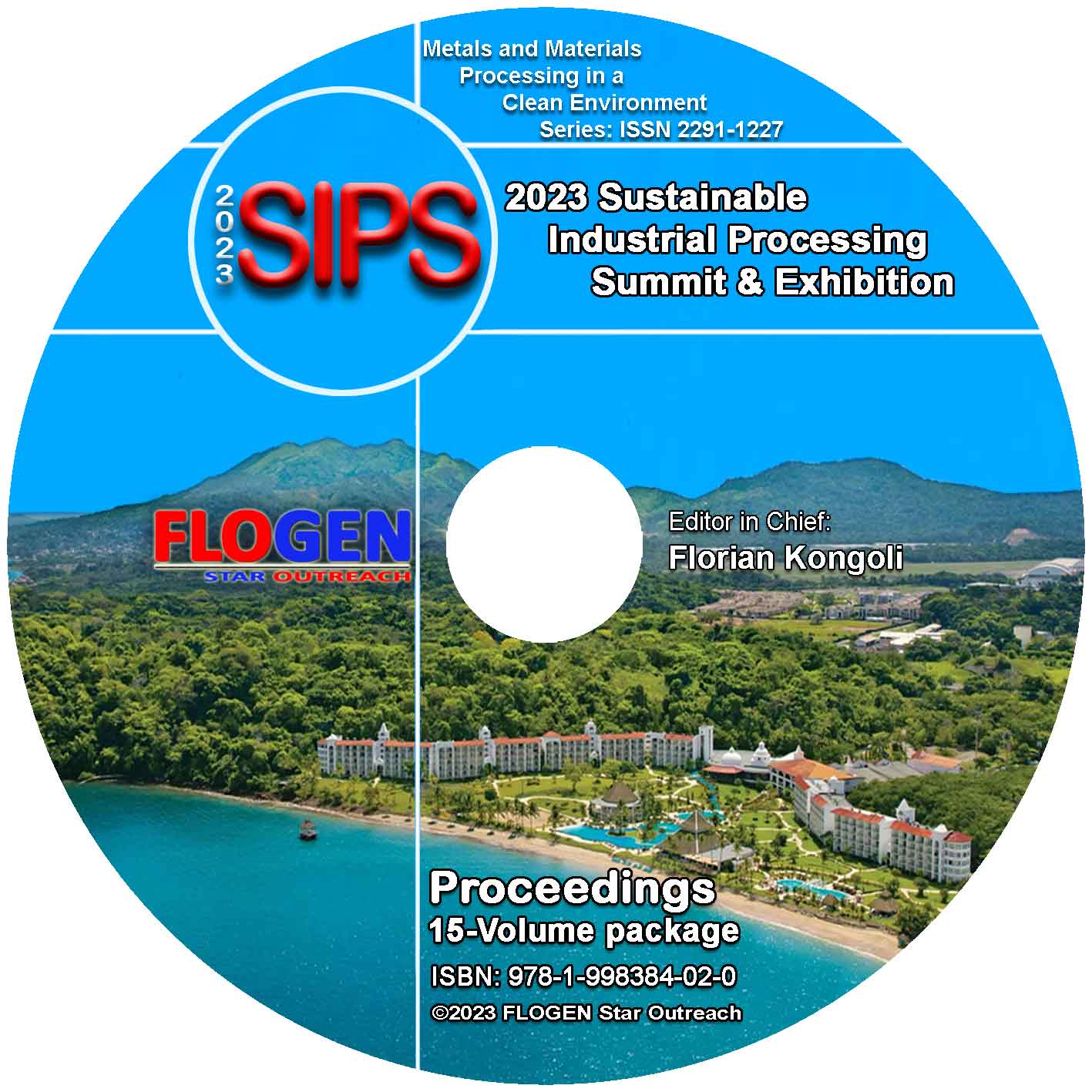2023-Sustainable Industrial Processing Summit
SIPS2023 Volume 1. Assis Intl. Symp/ Advanced Iron & Steel Making
| Editors: | F. Kongoli, T. Usui, R.A. Vilela, J. A. de Castro, W. F. Santos, J. Poveromo, GS. Mahobia, B. Deo |
| Publisher: | Flogen Star OUTREACH |
| Publication date: | 21 December 2023 |
| Pages: | 441 pages |
| ISBN: | 978-1-989820-72-8 (CD) |
| ISSN: | 2291-1227 (Metals and Materials Processing in a Clean Environment Series) |

CD shopping page
CIRCULARITY IN CIVIL CONSTRUCTION: ANALYSIS AND EVALUATION APPLIED TO EIGHT CASES IN THE STATE OF RIO DE JANEIRO
Nathalia Balzana Anacleto1; Vinicius Netto2;1UNIV. FEDERAL FLUMINENSE, Niterói, Brazil; 2PROGRAMA DE PóS-GRADUAçãO EM ARQUITETURA E URBANISMO DA UNIVERSIDADE FEDERAL FLUMINENSE - PPGAU-UFF, Niterói, Brazil;
Type of Paper: Regular
Id Paper: 50
Topic: 2
Abstract:
The current economic development model in global society has been progressively contributing to environmental degradation. It was intensified after the Industrial Revolution and is based on the linearity of extraction, production and waste generation[1]. This problem is particularly felt in the construction industry, responsible for a significant percentage of waste. Responses to this process include the proposition of a circular production economic model, according to which products should be designed to be reused, remanufactured, refurbished, and recycled, serving as input for a new production process[2]. This paper explores circular economy [3] approaches focused on the construction process. It proposes to develop a method for analyzing circularity practices and processes for the sector. It seeks to identify stages of construction practices considering the possibility of transition from linear to circular systems. To this end, the research developed a system of indicators [4] [5] to evaluate practices in relation to circularity parameters explored in the literature. This indicator system was applied to eight cases of construction companies operating in the state of Rio de Janeiro, which were invited to participate in the research. The findings suggest indications of different stages in the industry's transition to circular production.
Keywords:
Waste; Circular economy; Civil construction; Indicators; Indexes.References:
[1] Associação Brasileira de Empresas de Limpeza Pública e ResÃduos Especiais - ABRELPE. (2021). Panorama dos ResÃduos Sólidos no Brasil 2021. Recuperado em 07 de janeiro de 2022, de Download Panorama 2021 – Abrelpe.[2] GONÇALVES, Daniel Bertoli. Desenvolvimento sustentável: o desafio da presente geração. Revista Espaço Acadêmico, ano V, n.51, agosto, 2005.
[3] WEETMAN, Catherine. Economia Circular: Conceitos e estratégias para fazer negócios de forma mais inteligente, sustentável e lucrativa. Autêntica Business - 2019.
[4] SILVA, Vanessa Gomes da. SILVA, Maristela Gomes da. AGOPYAN, Vahan. Avaliação de edifÃcios no Brasil: da avaliação ambiental para avaliação de sustentabilidade. Ambiente ConstruÃdo, Porto Alegre, v. 3, n. 3, p. 7-18, jul./set. 2003
[5] SILVA, Vanessa Gomes da. Tecnologias para construção habitacional mais sustentável. Habitação mais Sustentável - Documento Metodologias de avaliação de desempenho ambiental de edifÃcios: estado atual e discussão metodológica. Projeto Finep 2386/04. São Paulo, 2007